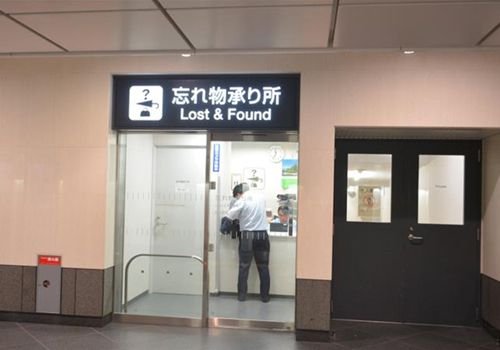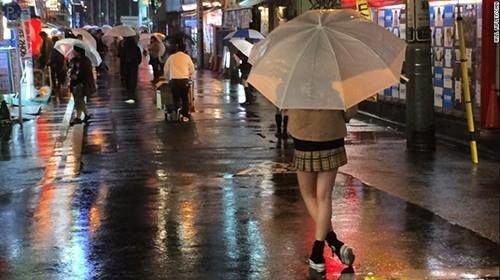In February, Maithilee Jadeja reported to police she lost her mobile phone on the top of Mount Aso, one of Japan’s active volcanoes and a popular tourist destination.
Two months later, the 20-year-old student studying at a university in Kyoto received a notice from police in the Kumamoto region, about 500 kilometers from where she lives, that they had found her phone.
According to police, a hiker accidentally picked it up and turned it in.
About a week later, the phone, carefully packaged in a foam box, returned to its owner.
In Japan, stories like that of Jadeja, who unfortunately drops her phone, forgets her wallet, loses her keys or misplaces valuables, often have a happy ending, Al Jazeera reported.
Paradise for people who lose things
A lost and found collection point, called koban, in Japan.
Japan has long been recognized by the world as an honest country.
Tokyo’s 660 square meter lost and found center receives millions of lost items each year, from everyday items such as glasses, keys, phones or driver’s licenses to things that are seemingly invisible.
`I dropped my wallet on the way from Narita airport to the hotel on the first day I arrived in Tokyo. I didn’t know a single word in Japanese so I had to ask a friend to help me contact the hotel where I was staying.
Mark D West, dean of the University of Michigan Law School, USA and author of `Law in Everyday Japan: Sex, Sumo, Suicide, and Statutes` (roughly translated: Law in everyday life in Japan: Sex
According to Mr. West, Japanese police effectively search and manage lost items because the country’s legal system is strict and complete.
Japan requires lost objects to be returned to the owner or delivered to a local police station.
`Everyone knows that if they return lost items they will receive a reward,` West said, `So they take the trouble to hand in the items at the local police station.`
According to statistics, there are about 6,000 lost and found collection points, called koban, across Japan.
Honesty

Japan: Paradise for people who lose things
How Japanese children behave when they see someone drop their wallet.
Not only due to strict laws but also due to the discipline in the Japanese way of life.
Toshinari Nishioka, a former police officer who works as a lecturer at Kansai University of International Relations, said no matter how small the amount of money found, children are taught to hand it over to the police, and the police are also educated.
`Even when the money is only worth one or five yen, the police officer will carefully accept the money and praise the child, ‘Good job!’
Mayuko Matsumoto, living in Shigan Prefecture, western Japan, recalls a memory from her childhood.
`My mother immediately took me to the koban to hand over my wallet. The policeman on duty there gave me some candy as a reward,` Matusomoto recounted.
According to statistics from the Economist, the crime rate in the land of the rising sun has continuously decreased over the past 13 years.
Lost item without owner

Kenji Takahashi, who lives and does business in Osaka city, specializes in buying back lost and unclaimed items.
Except for items that can easily trace the owner’s identity such as credit cards, ID cards or passports, most everyday items such as hats and umbrellas cannot be found.
After a period of storage without finding the owner, the lost items will be auctioned.
Kenji Takahashi, the 37-year-old owner of the store Tetsudo Wasuremono Kensho in central Osaka, specializes in buying lost and found items that the city police auction off.
Takahashi’s store is filled with items ranging from ties, eyeglasses, helmets, phone cases, prayer beads, old people’s clubs to golf bags.
Umbrellas are the most lost items, according to center manager Shoji Okubo in Tokyo.
`I think stores like us play an important role in the lost and found process. They would be thrown away if we didn’t buy them back and sell them. In short, everything went smoothly.`










